
Shutterstock
Staying productive in today’s fast-paced world can be a challenge, but with the right strategies, it’s easier than you think. Whether you’re trying to accomplish more at work, manage your household efficiently, or simply make the most of your time, there are practical ways to boost productivity. By implementing small, intentional changes, you can work smarter, not harder. From creating effective routines to using productivity tools, these tips will help you stay on top of your tasks. Here are 28 proven ways to increase your productivity and get more done each day.
Prioritize Tasks
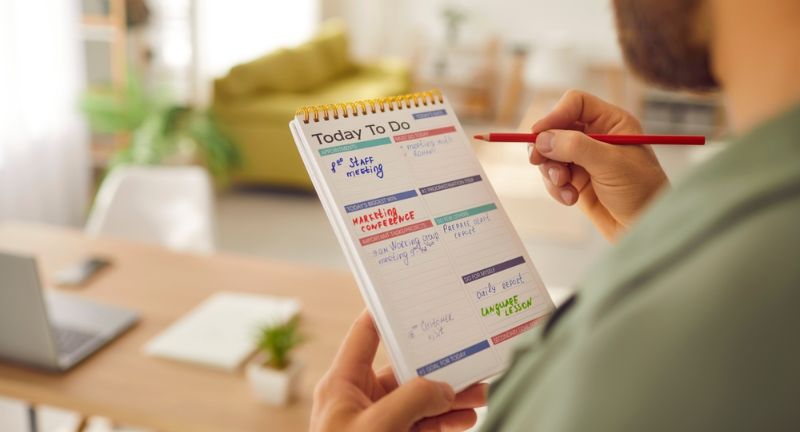
Shutterstock
A good productivity plan starts with prioritizing tasks. By organizing tasks in order of importance, you can ensure that critical items are completed first, which can prevent the buildup of stress later in the day. Whether you’re working on a big project or daily tasks, knowing what needs to be done first keeps you focused. With this approach, you won’t waste time on less important tasks when crucial work is still waiting.
Use the Pomodoro Technique
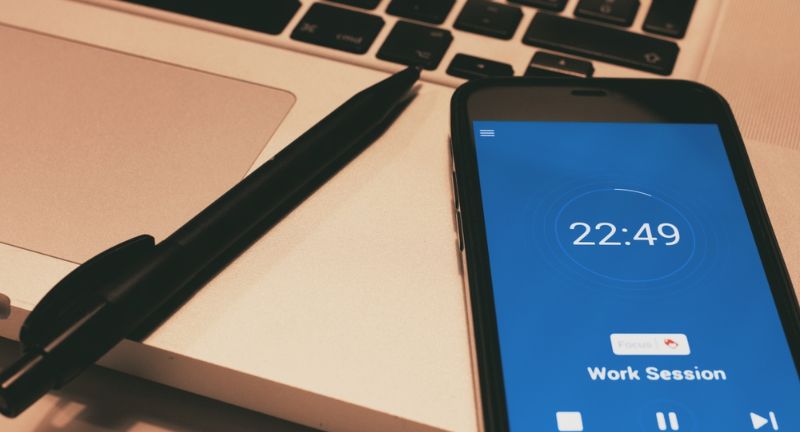
Shutterstock
The Pomodoro Technique helps you stay productive by working in focused bursts. You work for 25 minutes and then take a 5-minute break, giving your brain short periods of rest to maintain concentration. Over time, you may find that you’re able to focus more deeply without feeling burned out. This method also helps break the habit of procrastination by dividing your workday into manageable chunks.
Create a Daily Routine
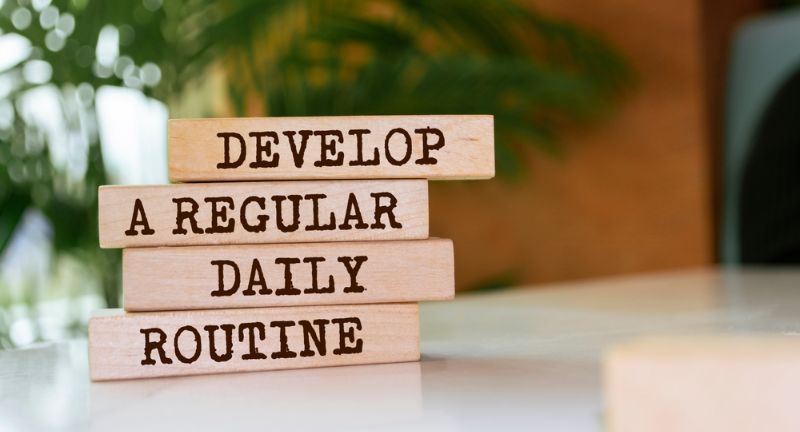
Shutterstock
Having a daily routine helps to reduce decision fatigue and keep your productivity high. When you wake up every day with a set plan in place, you’re less likely to feel overwhelmed. Establishing habits like exercising, working, and even relaxing at set times creates a balanced and productive day. A consistent routine allows you to focus more on completing tasks than on figuring out what to do next.
Set SMART Goals

Shutterstock
Setting SMART goals (Specific, Measurable, Achievable, Relevant, Time-bound) is an effective way to stay productive. These goals provide clarity and structure, making it easier to track progress and stay on course. SMART goals help break down bigger ambitions into smaller, actionable steps. With a clear sense of direction, you are more likely to stay focused and reach your objectives efficiently.
Limit Distractions

Shutterstock
Distractions are one of the biggest enemies of productivity. Whether it’s social media, phone notifications, or a noisy environment, distractions can derail your focus. Limiting these interruptions by turning off notifications or finding a quiet workspace can significantly improve your efficiency. With fewer distractions, you’ll be able to concentrate on the task at hand and get it done faster.
Break Down Large Tasks

Shutterstock
When faced with a large task, it’s easy to feel overwhelmed. Breaking the task down into smaller, more manageable chunks makes it easier to start and finish each portion. This method not only makes the task less intimidating but also allows for a clearer sense of progress. As you complete each step, you build momentum, making the entire task seem less daunting.
Use Time-Blocking
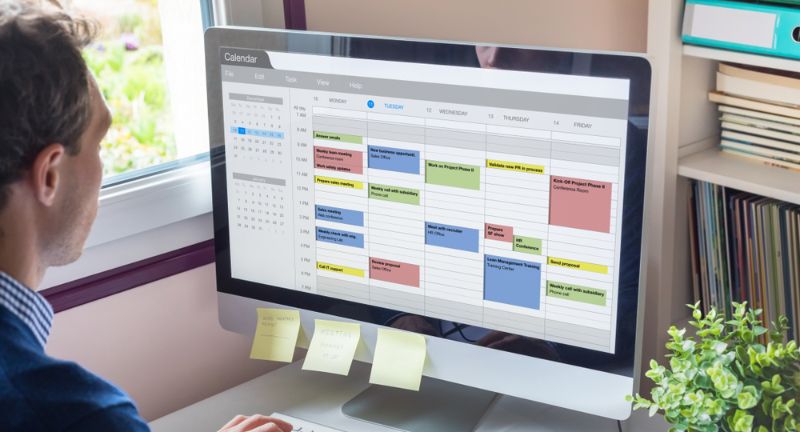
Shutterstock
Time-blocking is an excellent technique for improving productivity. By allocating specific blocks of time for different tasks, you ensure that every part of your to-do list gets the attention it deserves. This method helps prevent multitasking, which can reduce the quality of your work. With focused time on each task, you’ll accomplish more in a shorter period.
Delegate Tasks

Shutterstock
Sometimes being productive means not doing everything yourself. Delegating tasks to others when possible frees up your time to focus on more important activities. It also helps avoid burnout, as you’re not overloading yourself with work that could be handled by someone else. Trusting others to manage less critical tasks allows you to channel your energy into areas that require your expertise.
Set Deadlines
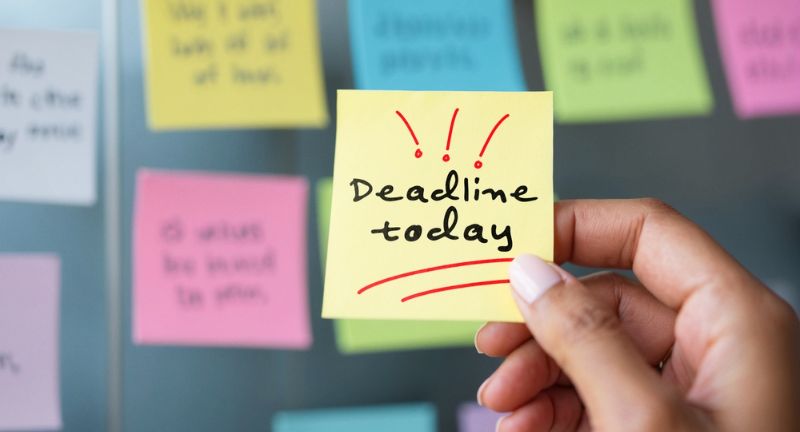
Shutterstock
Setting deadlines is a key way to prevent procrastination and ensure you stay on track. Deadlines create a sense of urgency, even if they are self-imposed. When you know something needs to be completed by a certain date, you’re more likely to get started right away. Having a deadline also helps you manage your time better and avoid unnecessary delays.
Eliminate Multitasking

Shutterstock
Multitasking may seem like an efficient way to get more done, but it often reduces productivity. Switching between tasks breaks your focus, leading to mistakes and lower-quality work. Instead of multitasking, focus on completing one task at a time. By giving each task your full attention, you’ll be able to finish it faster and more effectively.
Optimize Your Workspace

Shutterstock
Your workspace has a huge impact on how productive you are throughout the day. A cluttered, disorganized environment can distract you and make it harder to concentrate on your tasks. By optimizing your workspace, such as keeping it tidy and organizing your tools, you can improve your focus and efficiency. Creating a space that feels comfortable and promotes concentration can boost your productivity significantly.
Use Productivity Tools

Shutterstock
Productivity tools like task managers and scheduling apps can help streamline your workflow. Tools like Trello, Asana, or Todoist let you organize tasks, set deadlines, and track your progress easily. With everything in one place, you’ll save time and stay more organized. The key is to choose tools that work best for your specific needs and integrate them into your daily routine.
Practice Mindfulness

Shutterstock
Mindfulness is a powerful way to boost productivity by reducing stress and improving focus. Taking a few moments to breathe deeply or meditate can help clear your mind, allowing you to approach tasks with a fresh perspective. It can also increase your awareness of how you’re spending your time, helping you make better decisions throughout the day. Incorporating mindfulness practices into your routine can lead to greater mental clarity and more effective work habits.
Limit Meetings

Shutterstock
Meetings can be one of the biggest time-wasters in the workday. Many meetings can be streamlined, shortened, or even skipped if they aren’t necessary. Before attending or scheduling a meeting, consider if the same results can be achieved through a quick email or message. By limiting the number of meetings, you’ll have more time to focus on the tasks that truly matter.
Leverage Technology

Shutterstock
Technology can help automate routine tasks, giving you more time for important work. Tools like automated email responses, scheduling assistants, or project management software can handle repetitive or time-consuming tasks. When used correctly, technology can simplify your workflow and allow you to focus on what requires more of your expertise. Leverage these tools to reduce manual labor and stay more productive.
Take Regular Breaks

Shutterstock
Working for extended periods without breaks can lead to burnout and reduced productivity. Regular breaks allow your brain to recharge and come back to tasks with renewed energy. Whether it’s a five-minute stretch or a walk outside, breaks can significantly improve your focus and mental clarity. Incorporating short breaks throughout the day can keep your productivity levels high.
Track Your Time

Shutterstock
Time tracking helps you understand where your time is going and identify areas where you can improve efficiency. By logging the time spent on various tasks, you can spot any inefficiencies or time-wasting activities. This knowledge enables you to make adjustments to your daily routine and prioritize more effectively. Time tracking can be a powerful tool for gaining insight into your productivity habits.
Set a Morning Routine

Shutterstock
How you start your morning sets the tone for the rest of the day. Having a set morning routine, whether it’s exercising, planning your day, or reading, can give you the structure needed to stay productive. A positive and energizing morning routine helps eliminate the chaos that can come with an unplanned start. With the right habits, you’ll be better equipped to tackle your tasks throughout the day.
Use the 2-Minute Rule

Shutterstock
The 2-minute rule encourages you to complete small tasks immediately if they take two minutes or less. This strategy prevents little tasks from piling up and becoming overwhelming. By handling quick tasks right away, you keep your to-do list shorter and stay on top of things. The rule helps you maintain momentum and reduces the mental load of remembering tiny details for later.
Batch Similar Tasks

Shutterstock
Batching similar tasks together helps you stay in the same mindset, which can increase your efficiency. For example, if you need to make phone calls or answer emails, doing them all in one session can save time. By grouping these tasks, you avoid the need to constantly switch gears, which can interrupt your flow. Batching reduces cognitive load and allows you to work more smoothly.
Practice Time Management
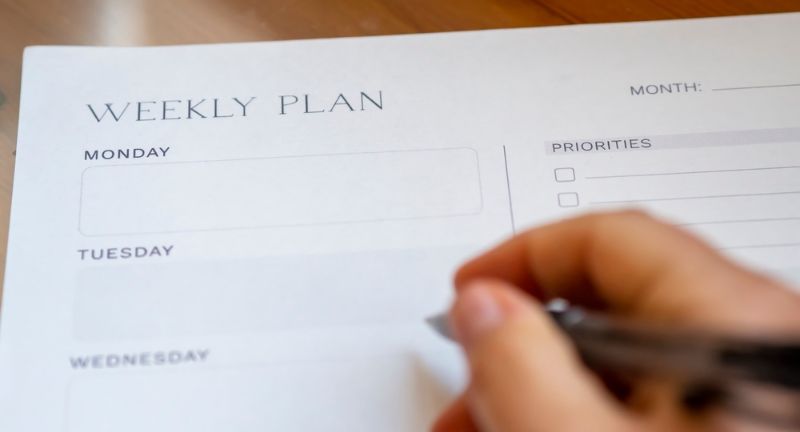
Shutterstock
Effective time management is essential for productivity. Using tools like to-do lists, calendars, and planners helps you structure your day and keep track of deadlines. It also helps you avoid overcommitting or spreading yourself too thin. By managing your time well, you can work more efficiently and accomplish more in less time.
Set Boundaries

Shutterstock
Setting boundaries is crucial to maintaining productivity and avoiding burnout. Whether it’s setting specific work hours or communicating your availability to others, boundaries help you stay focused. Without them, it’s easy for distractions to creep in, derailing your day. Protecting your time ensures that you can concentrate on your tasks without unnecessary interruptions.
Get Enough Sleep

Shutterstock
Sleep plays a critical role in productivity. Without enough rest, your ability to concentrate and make decisions is impaired, leading to inefficiencies and mistakes. Prioritizing sleep allows your mind to recharge, improving your mental clarity and performance during the day. By ensuring you get adequate sleep, you’ll stay sharp and productive for longer periods.
Exercise Regularly

Shutterstock
Regular exercise is a great way to increase your energy levels, which directly impacts productivity. Physical activity helps reduce stress, boost your mood, and improve your ability to focus. Incorporating even short workouts into your routine can make a big difference in how much you accomplish. Whether it’s a brisk walk or a full workout, regular exercise helps keep you at the top of your game.
Eat Healthy

Shutterstock
A healthy diet is essential for maintaining high energy levels and staying productive. Eating nutritious meals throughout the day helps fuel your brain and body, giving you the stamina to stay focused. Avoiding heavy or sugary meals can prevent energy crashes that can derail your productivity. Keeping healthy snacks on hand also ensures you have quick fuel without resorting to junk food.
Limit Social Media
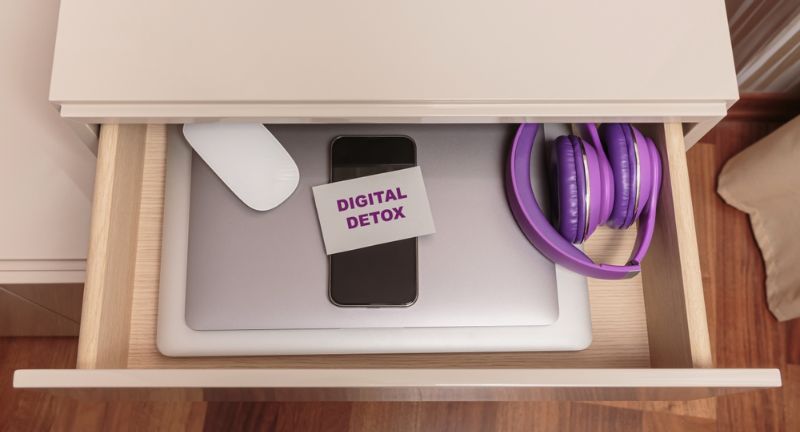
Shutterstock
Social media can be a major distraction if not managed properly. Constant notifications and the temptation to scroll can eat up valuable time without you even realizing it. Limiting your social media usage during work hours can drastically improve your focus and productivity. By using tools that block access during designated times, you can stay on track and avoid falling into the social media trap.
Review Your Day

Shutterstock
At the end of each day, reviewing what you’ve accomplished can give you a sense of closure and help you plan for tomorrow. It’s a great way to celebrate small wins and identify areas for improvement. Reflecting on what worked and what didn’t allows you to adjust your routine for better productivity. This habit also ensures that you stay organized and continuously improve your workflow.
Stay Positive

Shutterstock
Maintaining a positive attitude can have a profound effect on your productivity. A good mood can improve focus, reduce stress, and help you overcome challenges more easily. By staying positive, you create an environment where obstacles feel manageable, and progress feels more rewarding. Positivity helps you remain motivated, even during tough or monotonous tasks, leading to higher productivity levels.
Conclusion

Shutterstock
Boosting productivity is about making small, meaningful changes that help you work more efficiently and stay focused. By incorporating these 28 strategies into your daily routine, you’ll find yourself achieving more with less stress. Whether it’s using time-blocking, setting SMART goals, or simply taking regular breaks, these methods are easy to implement and effective. Remember, productivity is a journey, and every step forward counts. Start with a few tips and gradually build a system that works best for you.
























































